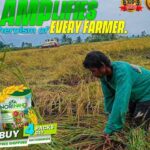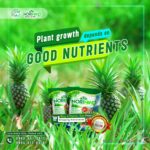
Diversified Production: A Key to Food Security
In an increasingly globalized and interconnected world, ensuring food security remains a paramount concern. One of the most effective strategies to achieve this is through diversified agricultural production. By cultivating a variety of crops and livestock, farmers can enhance the resilience of food systems, protect against the impacts of climate change, and ensure a stable and nutritious food supply for all.
Diversified production reduces the risk associated with monoculture farming, where reliance on a single crop can lead to catastrophic losses if that crop fails due to pests, diseases, or adverse weather conditions. In contrast, a diversified farm spreads risk across multiple species, which can buffer against these threats. For instance, if one crop suffers from a disease outbreak, other crops may remain unaffected, ensuring that not all is lost. This resilience is crucial for maintaining consistent food supplies and protecting farmers’ livelihoods.
Climate change poses a significant threat to global food security, with extreme weather events becoming more frequent and unpredictable. Diversified production systems can better adapt to these changes by using a range of crops and livestock that thrive under different conditions. This adaptability can mitigate the adverse effects of climate variability, such as droughts, floods, and temperature fluctuations, ensuring that food production remains stable even in challenging environments.
Biodiversity in agriculture also enhances ecosystem services that are vital for crop production. Different plants and animals contribute to soil health, water retention, and pest control, creating a more balanced and productive farming ecosystem. For example, crop rotation and intercropping can improve soil fertility and structure, reducing the need for synthetic fertilizers and promoting sustainable farming practices. Livestock integration can provide natural manure, further enriching the soil and supporting healthy crop growth.
Nutritional security is another critical aspect of food security. Diversified farms can produce a variety of foods, offering a balanced diet rich in essential nutrients. By growing a mix of fruits, vegetables, grains, and legumes, alongside raising livestock, farmers can provide their communities with access to a wide range of vitamins, minerals, and proteins. This dietary diversity is vital for preventing malnutrition and promoting overall health, particularly in vulnerable populations.
Economic stability for farmers is also enhanced through diversified production. By cultivating multiple products, farmers can access different markets and income streams, reducing their financial vulnerability. This economic resilience is particularly important for smallholder farmers, who represent a significant portion of the global agricultural workforce. Diversification can open up opportunities for value-added products, such as processed foods or artisanal goods, further boosting farm income and rural development.
Norinano products can play a pivotal role in supporting diversified production systems. Their range of organic fertilizers, biopesticides, and soil amendments are designed to cater to various crops, enhancing their growth and resilience. Norinano’s plant health products can help farmers manage a diverse array of crops more effectively, ensuring that each plant receives the necessary nutrients and protection to thrive. By providing sustainable and eco-friendly solutions, Norinano supports farmers in their efforts to achieve diversified and resilient food production.
In conclusion, diversified production is a cornerstone of food security, offering numerous benefits that extend beyond the farm. It enhances resilience against climate change, promotes ecological balance, ensures nutritional security, and provides economic stability for farmers. By embracing diversified agricultural practices and utilizing innovative products like those offered by Norinano, we can build a more secure and sustainable food system for the future.



